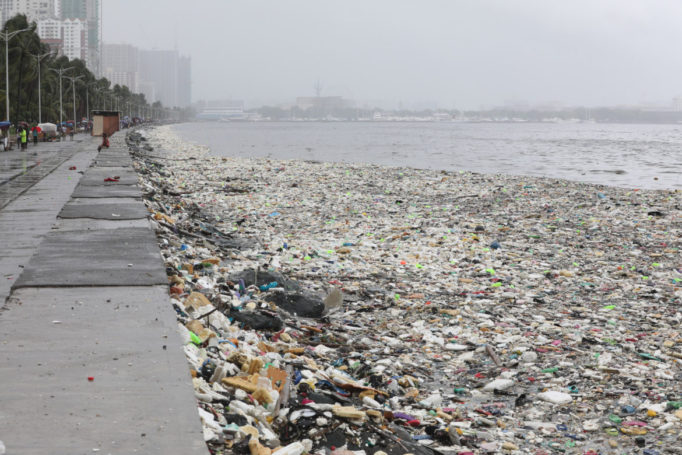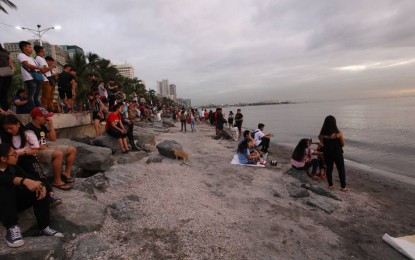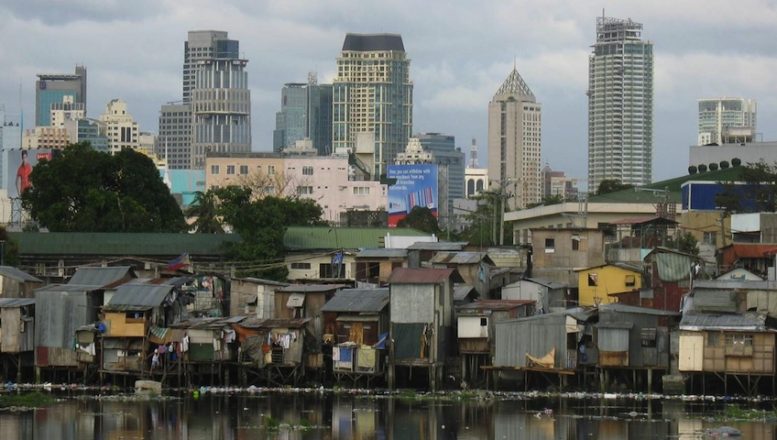The neglect by the government in implementing environmental laws and regulations caused some concerned residents to file suit, and this resulted in the issuance of the Supreme Court Continuing Mandamus on the Clean-up of Manila Bay. Lead Counsel Antonio Oposa Jr stated it succinctly: “If there is lack of political will on the part of government agencies, it is the function of the judiciary to supplant it with the will, the force, and the power of the law.”
We in the Maritime League have been continuously assessing the implementation of the Supreme Court’s Continuing Mandamus on the preservation and protection of the Manila Bay environment. At least twice a year, we include an update on this from the DENR, specifically the Coordinating Committee on the Mandamus, which is directly under the DENR-NCR. One of these occasions was the Maritime Forum hosted by the DENR itself, except that this year we were caught amidst the Boracay rehabilitation project, but nevertheless the amiable DENR Sec Roy A Cimatu showed up at the Maritime Forum and impressed our attendees as a hard-working, hands on, and focused cabinet member. We can say that as well about his Undersecretary Rodolfo C Garcia, who was also present to Co-Chair that Maritime Forum. I’ve known both of them for many years.
As stated by DLSU researchers Katherine Pia M. Cabatbat and Teresa M. Camarines in a paper analyzing its relevance to Laudato Si of Pope Francis, “the writ of continuing mandamus issued by the Supreme Court in the year 2008 in the case, MMDA vs Concerned citizens of the Philippines with G.R. Nos. 171947-48 is a concrete way by which the Filipino people through its judicial system responds to the challenges posted by the environmental pollution and environmental destruction in the present world.”
“Continuing mandamus is a writ issued by a court in an environmental case directing any agency or instrumentality of the government or officer thereof to perform an act or series of acts decreed by final judgment which shall remain effective until judgment is fully satisfied.” It is a command of continuing compliance, which aims to ensure the successful implementation of the order of the court for the protection of a specific environment.
The Supreme Court (SC) has a Committee continuously reviewing the implementation of the Mandamus, chaired by a SC Justice.
The Biodiversity Management Bureau identifies the players involved in the implementation of the Mandamus: DENR, DILG, DPWH, DA, DEPED, DBM, LWUA, PCG, PNP-MG, PPA, BFAR, MWSS and its two concessionaires, but the Biodiversity Management Bureau is in charge of only one cluster, one that is concerned with biodiversity and wildlife habitat.
As a result of the failure of the SC Mandamus to achieve its goal reasonably and because of the initial success of the Boracay rehabilitation project, President Rodrigo Duterte last February 2019 issued Administrative Order No. 16, creating the task force to ensure “the complete rehabilitation, restoration, and conservation of the Manila Bay.”

Garbage washed ashore Manila Bay along Roxas Boulevard after the Southwest Monsoon on July 2018;
For many years, we’ve seen the massive garbage collection effort from the shores of Metro Manila in particular during World Environment Day. In 1994, I recall an accomplishment report announcing that our effort resulted in a world record haul of garbage collected in a clean up effort that made many to comment that it also proved that we rampantly violate the law by disposing of trash illegally into our waterways. How true.

People sitting and watching the sunset after the Manila Bay clean-up drive.
This practice continues up to now, and even as the periodic visits by media teams together with local and national teams performing their tasks expose this openly, we still do not see the point that the single most important cause of environmental degradation of Manila Bay due to solid and liquid waste is the proliferation of squatter communities on our coasts. The removal of these shanties is a sine qua non to the solution of this problem.
The Government normally uses the politically correct term “illegal” or “Informal” settlers, highlighting the kid gloves treatment we give to the squatters, quite a few of whom are professional or habitual squatters that keep coming back after collecting some money after having been relocated.
The PACC and the Mandamus
Having learned of certain anomalies pertaining to garbage collection, President Duterte last year directed Presidential Anti-Crime Commission (PACC) Chairman Dante Jimenez to look into the issue of how corruption may have affected the implementation of the Mandamus.
As a result, Chairman Jimenez invited us together with various agencies involved to an initial meeting at the Manila Yacht Club on 28-March-2019. During the meeting, the following were taken up: PACC Executive Asst Joseph L Sorra briefed on the PACC’s past accomplishments, the PACC tasking on the environment as covered by the 2018 SONA, ABS CBN item on illegal quarrying by Chinese nationals; the Al Jazeera broadcast on Manila Bay pollution, 6-October-2017; news item on 6-June-2018 that the Philippines ranks third as worst ocean polluter, following China and Indonesia; news item ABS CBN on continuous dumping of garbage on the esteros, 21-March-2019;
In reaction, Martin B Dino, USEC for Barangay Affairs of the DILG commented that one of the bigger problems on the Manila Bay clean up is the non-implementation of environmental laws by LGUs, particularly at the barangay level. He stated that on review, he discovered that DBM had provided P50 billion for relocation of informal settlers, and up to now, LGUs could not account for the funds remitted to them.
The various agency representatives present briefed on their specific tasks with emphasis on the SC Mandamus. The focus was on informal settlers and the problem of relocation and inability of government to accomplish their tasks unless they are relocated.
Amb Alberto A Encomienda commented on the focus of his NGO, Balik Balangay, which includes raising awareness on pollution from ships. In this regard, he cited Greece’s PHILMEPA, which PACC Chair Jimenez created years ago, patterned after the HELMEPA of Greece.
Update from the 144th Maritime Forum
During the 144th Maritime Forum held at the AMOSUP Conference Hall on 26-April-2019 at Intramuros, I reported on the PACC meeting at MAAP, as well as the matter of anomalies in river and bay dredging in Batangas and Zambales.
News media in early April 2019 revealed the presence of a Chinese dredger in Lobo, Batangas. Details later showed questionable acts by the LGU, which indicates lack of clear policy or proper implementation with respect to silt removal and black sand mining. This case is similar in nature to issues in Zambales province where illegal dredging/mining have been exposed since the Mt Pinatubo eruption in 1991.
I stated that silt dredging is necessary, especially due to destruction caused by flooding of affected areas. Likewise, mining of black sand together with dredging is necessary and can be lucrative for the LGU and the national government, if done properly.
Reactions on influence of corruption on environmental issues
RAdm Amable B Tolentino, PACC Chief of Staff, emphasized the importance of anti-corruption component in the inter-agency cooperation in the protection of the environment, and basically reiterated the matters taken up by Chairman Jimenez during the initial meeting at the Manila Yacht Club.
DILG USEC Martin Diño raised the issue on the alleged corruption or misuse of the P50-billion allocation of the informal settlers relocation fund. He commented that one of the larger issues in the Manila Bay clean-up is the problem of the implementation of laws by the LGU’s, particularly at the Barangay level. He stated that corruption is caused by political patronage.
Conclusion
Without downplaying the role of various Committees on the SC Mandamus, the relocation of squatters must be given top priority. Removal of such colonies, and placing the areas vacated under complete LGU control for development, must be fully institutionalized to include empowering and enabling LGUs to develop the capability to guard against squatting.
The directive of President Rodrigo Duterte to engage the PACC to take action against corrupt LGU officials must be pursued, for not only has the national government wasted funds, worse, the problem has continued to be there, and the environmental issues on disposal of solid and liquid waste continues. Moreover, the issue of dredging of river silt must be thoroughly studied with the view of expedient action to desilt, making the matter transparent, and beneficial to the common good, not to the officials of national and local government.
